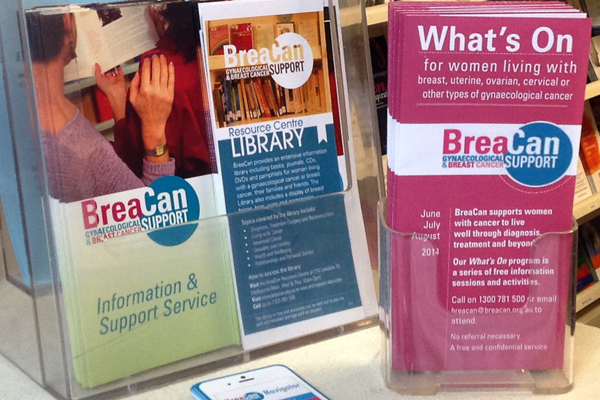Women diagnosed with breast cancer are being paired with survivors of the disease to help them through treatment at Sunshine Hospital.
The Bridge of Support program was originally trialled at Royal Melbourne Hospital in partnership with BreaCan, a gynaecological and breast cancer support service, in 2010.
The pilot’s success has led to the program being adopted at Sunshine Hospital, where it began operating last week.
It offers women undergoing breast cancer treatment at the hospital the chance to talk to volunteers about their diagnosis and treatment.
All of the volunteers have had breast cancer and are trained to draw on their own experiences to help women undergoing chemotherapy or surgery or attending the outpatient clinic.
BreaCan manager Lee Kennedy said the program allowed women recently diagnosed with the disease to let their guard down and talk frankly.
“A lot of women feel they have to remain cheery when talking to family and friends,” she said.
“We don’t provide counselling or medical advice, but our volunteers might provide emotional or practical support. Just meeting someone who is a survivor also provides hope for people.”
Helping from experience
Volunteer Naideen Hillier had her own experience with breast cancer in 2010.
Today she describes herself as “cancer free” and loves being able to help other women who are going through the same ordeal.
“A lot of it is reassurance that what they’re feeling is what people who’ve been there before also went through, that what they’re feeling is OK,” Ms Hillier said.
“The benefit is they feel that reassurance from someone who’s lived through that experience.”
She said many of the women she spoke with worried more about how their family was coping with their diagnosis, despite being the patient themselves.
“That’s a really funny, common thread with women,” she said.
“Even though they’re the ones going through it, they feel like they have to protect their families from the trauma.”
Ms Hillier said women often just wanted to know practical things, such as whether they can exercise throughout treatment or what they should be eating.








